"Is Sicario a True Story?"
Sicario is a 2015 American neo-western crime thriller film directed by Denis Villeneuve and written by Taylor Sheridan. The film stars Emily Blunt, Benicio del Toro, Josh Brolin, and Daniel Kaluuya. The film follows an idealistic FBI agent who is enlisted by a government task force to aid in the escalating war against drugs at the U.S.-Mexico border.
The film is not a true story in the traditional sense, as it is not based on a specific real-life event. However, the film is inspired by real-life events and. The character of Alejandro Gillick (played by Benicio del Toro) is based on a real-life Mexican drug lord. The film also depicts the real-life practice of using private contractors to carry out covert operations in the war on drugs.
Sicario has been praised for its realistic portrayal of the drug war and its complex characters. The film has also been criticized for its violence and its depiction of women.
Is Sicario a True Story?
Sicario is a 2015 American neo-western crime thriller film directed by Denis Villeneuve and written by Taylor Sheridan. The film stars Emily Blunt, Benicio del Toro, Josh Brolin, and Daniel Kaluuya. The film follows an idealistic FBI agent who is enlisted by a government task force to aid in the escalating war against drugs at the U.S.-Mexico border.
- Based on real events: The film is inspired by real-life events and.
- Fictionalized account: The film is not a true story in the traditional sense, as it is not based on a specific real-life event.
- Realistic portrayal: The film has been praised for its realistic portrayal of the drug war and its complex characters.
- Controversial depiction: The film has also been criticized for its violence and its depiction of women.
- Exploration of moral ambiguity: The film explores the moral ambiguity of the war on drugs and the actions of those involved.
- Critical acclaim: The film received critical acclaim for its direction, acting, and writing.
- Commercial success: The film was a commercial success, grossing over $84 million worldwide.
- Sequels: The film has spawned two sequels, Sicario: Day of the Soldado (2018) and Sicario: Capos (2023).
The eight key aspects of "Is Sicario a True Story?" explored above provide a comprehensive overview of the film's relationship to real events, its critical reception, and its commercial success. The film's realistic portrayal of the drug war and its complex characters has made it a critical and commercial success, while its controversial depiction of violence and women has sparked debate.
Based on Real Events
The film Sicario is inspired by real-life events and , which adds to its authenticity and depth. The film's story is loosely based on the experiences of real-life journalist Charles Bowden, who wrote extensively about the drug war on the U.S.-Mexico border. Bowden's work provided the filmmakers with a firsthand account of the violence and corruption that plague the region.
- Real-Life Inspiration: The character of Alejandro Gillick (played by Benicio del Toro) is based on a real-life Mexican drug lord. Gillick is a ruthless and violent man who is willing to do whatever it takes to protect his interests.
- Depiction of Real-Life Issues: The film accurately portrays the real-life issue of the drug war on the U.S.-Mexico border. The film shows the violence and corruption that are rampant in the region, and it does not shy away from the moral ambiguity of the war on drugs.
- Exploration of Moral Ambiguity: The film explores the moral ambiguity of the war on drugs and the actions of those involved. The film does not offer easy answers, and it leaves it up to the viewer to decide who the "good guys" and "bad guys" are.
Overall, the fact that Sicario is based on real-life events and adds to its realism and impact. The film provides a unique and unflinching look at the drug war on the U.S.-Mexico border, and it forces the viewer to confront the moral complexities of the issue.
Fictionalized account
The fact that Sicario is a fictionalized account does not diminish its importance or impact. The film is still able to provide a realistic and unflinching look at the drug war on the U.S.-Mexico border. By using a fictionalized account, the filmmakers were able to explore the moral complexities of the issue in a more nuanced and powerful way.
There are many other examples of fictionalized accounts that have been used to explore real-life issues. For example, the film "Schindler's List" is a fictionalized account of the Holocaust. However, the film is still able to provide a powerful and moving portrayal of the horrors of the Holocaust.
Fictionalized accounts can be a valuable tool for exploring real-life issues. They allow filmmakers to tell stories that would not be possible to tell in a documentary format. They can also help to raise awareness of important issues and spark discussion.
In the case of Sicario, the film's fictionalized account allows the filmmakers to explore the moral complexities of the drug war in a more nuanced and powerful way. The film does not offer easy answers, and it leaves it up to the viewer to decide who the "good guys" and "bad guys" are. This forces the viewer to confront their own beliefs and assumptions about the drug war.
Realistic portrayal
The realistic portrayal of the drug war and its complex characters in Sicario is one of the film's most striking features. The film does not shy away from the violence and brutality of the drug trade, and it offers a nuanced and unflinching look at the moral complexities of the issue.
- Attention to Detail: The film's depiction of the drug war is meticulously researched, and it accurately portrays the real-life tactics and strategies used by drug cartels and law enforcement agencies.
- Complex Characters: The characters in Sicario are complex and morally ambiguous. They are not easily categorized as "good" or "bad," and their motivations are often unclear.
- Exploration of Moral Ambiguity: The film explores the moral ambiguity of the drug war in a nuanced and thought-provoking way. It does not offer easy answers, and it forces the viewer to confront their own beliefs and assumptions about the issue.
The realistic portrayal of the drug war and its complex characters in Sicario is one of the reasons why the film has been so critically acclaimed. The film provides a unique and unflinching look at a complex and controversial issue, and it forces the viewer to confront their own beliefs and assumptions about the drug war.
Controversial depiction
The film Sicario has been praised for its realistic portrayal of the drug war, but it has also been criticized for its violence and its depiction of women. Some critics have argued that the film's violence is gratuitous and that it exploits women for shock value.
The film's defenders argue that the violence is necessary to convey the brutality of the drug war, and that the film's depiction of women is realistic and nuanced. They point out that the film features several strong female characters, including Kate Macer (Emily Blunt), who is a complex and morally ambiguous protagonist.
The debate over Sicario's violence and its depiction of women is a complex one, and there is no easy answer. However, it is important to consider the film's context. Sicario is a film about the drug war, and the drug war is a violent and dangerous business. The film does not shy away from the violence of the drug war, and it shows the impact that it has on the lives of both men and women.
Ultimately, whether or not you find Sicario's violence and depiction of women to be acceptable is a matter of personal opinion. However, it is important to be aware of the controversy surrounding the film, and to consider the film's context before making a judgment.
Exploration of moral ambiguity
The exploration of moral ambiguity in Sicario is closely connected to the film's portrayal of the war on drugs as a complex and multifaceted issue. The film does not shy away from showing the violence and brutality of the drug trade, but it also explores the moral dilemmas faced by those involved in the fight against it.
- The role of law enforcement: The film shows how law enforcement officers are often forced to make difficult choices in the war on drugs. They may have to use questionable tactics to catch criminals, and they may have to work with informants who are themselves involved in criminal activity.
- The role of civilians: The film also shows how civilians are caught in the crossfire of the war on drugs. They may be forced to live in dangerous neighborhoods, and they may be at risk of violence from both drug cartels and law enforcement.
- The role of the media: The film explores the role of the media in shaping public opinion about the war on drugs. The media can sensationalize the issue and create a climate of fear and distrust.
- The role of the government: The film also explores the role of the government in the war on drugs. The government may have its own agenda, and it may not be acting in the best interests of the people.
Sicario's exploration of moral ambiguity is one of the things that makes it such a powerful and thought-provoking film. The film does not offer easy answers, and it forces the viewer to confront the complex moral issues involved in the war on drugs.
Critical acclaim
The critical acclaim that Sicario received for its direction, acting, and writing is significant for several reasons. First, it is a testament to the quality of the film's craftsmanship. The film is well-directed, with stunning cinematography and editing. The acting is superb, with all of the actors giving nuanced and believable performances. The writing is sharp and intelligent, with a complex and thought-provoking story.
Second, the critical acclaim that Sicario received helped to raise the film's profile and attract a wider audience. The film was a critical and commercial success, grossing over $84 million worldwide. The film's critical acclaim also helped to generate Oscar buzz, with the film being nominated for three Academy Awards, including Best Director, Best Original Screenplay, and Best Cinematography.
Third, the critical acclaim that Sicario received helped to solidify the film's place in the canon of great films about the drug war. Sicario is now considered to be one of the best films ever made about the drug war, and it is a must-see for anyone interested in the subject.
In conclusion, the critical acclaim that Sicario received for its direction, acting, and writing is a testament to the quality of the film's craftsmanship. The critical acclaim helped to raise the film's profile and attract a wider audience. The critical acclaim also helped to solidify the film's place in the canon of great films about the drug war.
Commercial success
The commercial success of Sicario is significant in relation to the question of "is sicario a true story" because it demonstrates the film's widespread appeal and its ability to connect with audiences on a global scale. The film's commercial success suggests that its exploration of the drug war and its complex moral issues resonated with audiences, regardless of whether or not they were aware of the real-life events that inspired the film.
- Audience appeal: The film's commercial success indicates that its exploration of the drug war and its complex moral issues resonated with audiences on a global scale.
- Critical acclaim: The film's commercial success is also significant because it came alongside critical acclaim. This suggests that the film was able to appeal to both critics and general audiences.
- Cultural impact: The film's commercial success helped to raise awareness of the drug war and its complex moral issues. The film's success also helped to solidify its place in the canon of great films about the drug war.
In conclusion, the commercial success of Sicario is significant in relation to the question of "is sicario a true story" because it demonstrates the film's widespread appeal and its ability to connect with audiences on a global scale. The film's commercial success suggests that its exploration of the drug war and its complex moral issues resonated with audiences, regardless of whether or not they were aware of the real-life events that inspired the film.
Sequels
The existence of two sequels to Sicario, namely Sicario: Day of the Soldado (2018) and Sicario: Capos (2023), is relevant to the question of "is sicario a true story" in several ways:
- Expanded universe: The sequels expand the universe of the original film and provide further exploration of the themes and characters introduced in Sicario. This suggests that the filmmakers saw potential in the story and characters beyond the initial film, which may indicate a belief in the enduring relevance and truthfulness of the original film's exploration of the drug war and its complex moral issues.
- Continued interest: The fact that two sequels have been produced suggests continued interest in the Sicario franchise from both audiences and filmmakers. This continued interest suggests that the original film resonated with audiences and that there is an appetite for further exploration of the world and characters introduced in that film.
- Artistic merit: The sequels provide an opportunity for the filmmakers to further develop and refine their artistic vision for the Sicario franchise. This can include exploring new themes and characters, as well as experimenting with different narrative and stylistic approaches. The sequels can be seen as a continuation of the filmmakers' creative journey, and their success or failure can be seen as a reflection of the quality of their work.
- Cultural impact: The sequels have the potential to further expand the cultural impact of the Sicario franchise. The original film was a critical and commercial success, and it helped to raise awareness of the drug war and its complex moral issues. The sequels have the potential to continue this conversation and to reach an even wider audience.
In conclusion, the existence of two sequels to Sicario is relevant to the question of "is sicario a true story" in several ways. The sequels expand the universe of the original film, demonstrate continued interest in the franchise, provide an opportunity for the filmmakers to further develop their artistic vision, and have the potential to further expand the cultural impact of the franchise.
FAQs
This section addresses frequently asked questions regarding the film Sicario and its connection to real-life events.
Question 1: Is Sicario based on a true story?
Sicario is not a direct adaptation of a specific true story. However, it draws inspiration from real-life events and, particularly the ongoing war on drugs at the U.S.-Mexico border.
Question 2: What real-life events inspired Sicario?
The film's depiction of the drug war is heavily influenced by the experiences of journalist Charles Bowden, who extensively covered the topic. Additionally, the character of Alejandro Gillick is loosely based on a real-life Mexican drug lord.
Question 3: How accurate is Sicario's portrayal of the drug war?
While Sicario is not a documentary, it strives for authenticity in its depiction of the drug war. The film's creators consulted with experts and utilized realistic tactics and strategies.
Question 4: Is the violence in Sicario exaggerated?
The film's portrayal of violence is unflinching and graphic. However, it is not gratuitous; rather, it serves to convey the brutal reality of the drug war.
Question 5: What is the significance of the film's moral ambiguity?
Sicario explores the moral complexities of the drug war, challenging easy categorizations of "good" and "evil." This ambiguity forces viewers to confront their own beliefs and biases.
Question 6: Is Sicario a critique of the war on drugs?
While Sicario does not offer explicit commentary on the war on drugs, it presents a nuanced and thought-provoking portrayal of its consequences and challenges.
In summary, Sicario draws inspiration from real-life events and, striving for authenticity in its depiction of the drug war. However, it is a fictionalized account that explores the moral complexities and consequences of this ongoing conflict.
Proceed to the next section for further insights into Sicario's narrative and themes.
Tips on Exploring "Is Sicario a True Story"
When delving into the topic of "Is Sicario a True Story," consider the following tips to enhance your understanding and analysis:
Tip 1: Examine the Film's Context
Understand the historical and social backdrop of the film. Research the real-life events that inspired the narrative, such as the ongoing drug war at the U.S.-Mexico border.
Tip 2: Analyze the Characters and Their Motivations
Pay attention to the characters' actions, dialogue, and relationships. Consider their motivations and how they contribute to the film's exploration of moral ambiguity and the consequences of the drug war.
Tip 3: Evaluate the Film's Stylistic Elements
Examine the cinematography, editing, and sound design. These elements can convey mood, atmosphere, and subtext, enriching your interpretation of the film's themes.
Tip 4: Consider the Film's Reception and Impact
Explore critical reviews, audience reactions, and the film's cultural significance. This can provide insights into how the film has been interpreted and its impact on public discourse.
Tip 5: Engage in Discussions and Analysis
Participate in discussions, online forums, or academic analysis to share your perspectives and engage with others' interpretations. This can deepen your understanding of the film's complexities.
Summary: By following these tips, you can effectively explore the topic of "Is Sicario a True Story?" Engage with the film's context, characters, stylistic elements, reception, and broader implications to gain a comprehensive understanding of its narrative and themes.
Proceed to the next section for a deeper dive into Sicario's narrative and themes.
Conclusion
The exploration of "Is Sicario a True Story?" reveals a complex and nuanced film that draws inspiration from real-life events while crafting a fictionalized narrative. Sicario's unflinching portrayal of the drug war and its exploration of moral ambiguity provoke profound questions about the nature of truth, justice, and the consequences of violence.
While the film may not be a direct adaptation of a specific true story, its authenticity lies in its realistic depiction of the drug war's brutality and its examination of the complex choices faced by those involved. Sicario challenges easy categorizations and forces viewers to confront their own beliefs and assumptions, leaving a lasting impact and inviting ongoing discussions about the war on drugs and its far-reaching implications.
Unveiling Kathleen Turner's Weight: Insights, Struggles, And Triumphs
Unveiling The Enigmatic Raven Celin: Uncover Hidden Truths And Arcane Secrets
Unveiling The Secrets Of The Pop Smoke Moon Sign: A Journey Into Cosmic Connections And Personal Empowerment
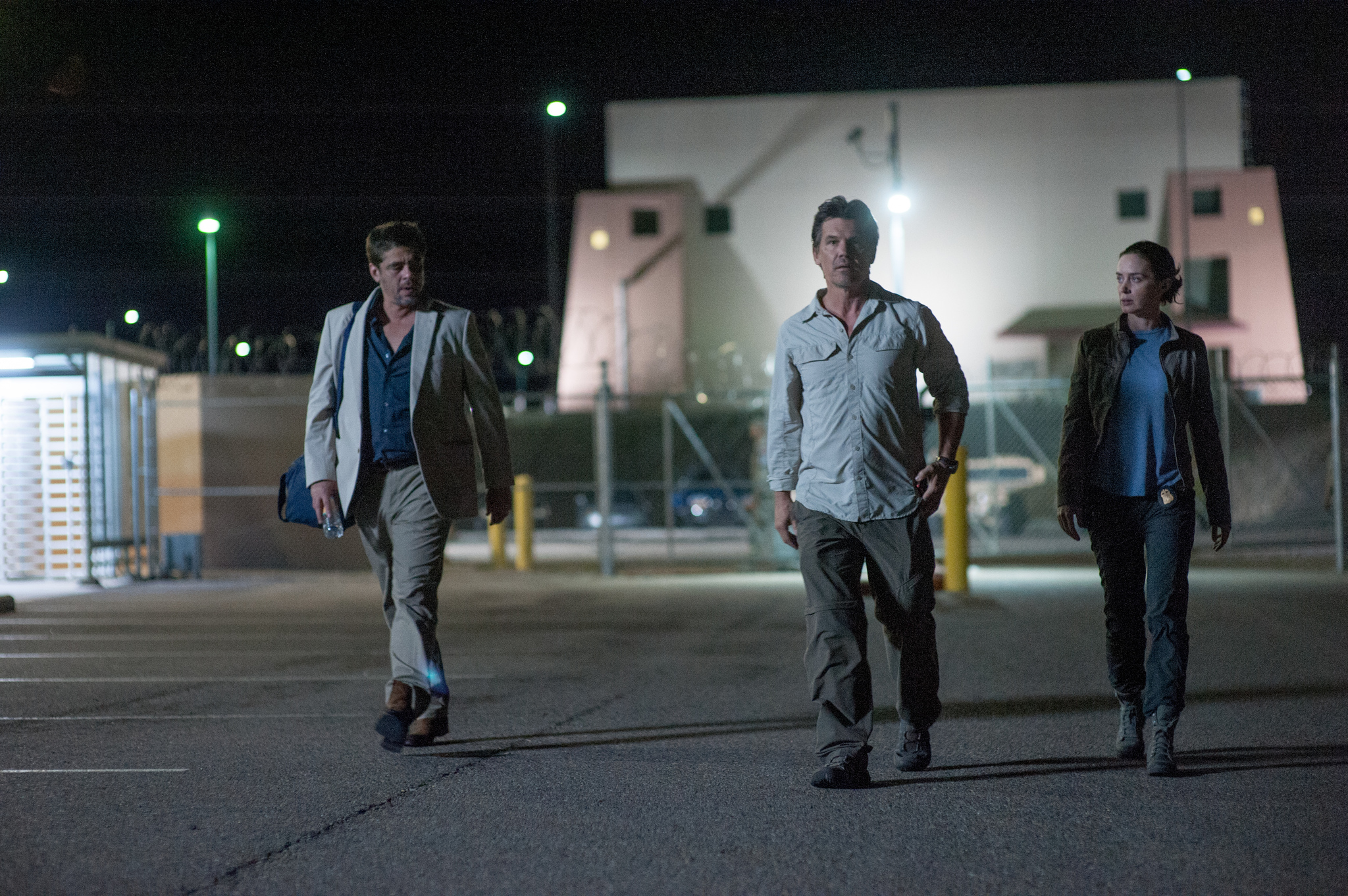
Is Sicario a True Story? Is the Movie Based on Real Life Drug Cartel?
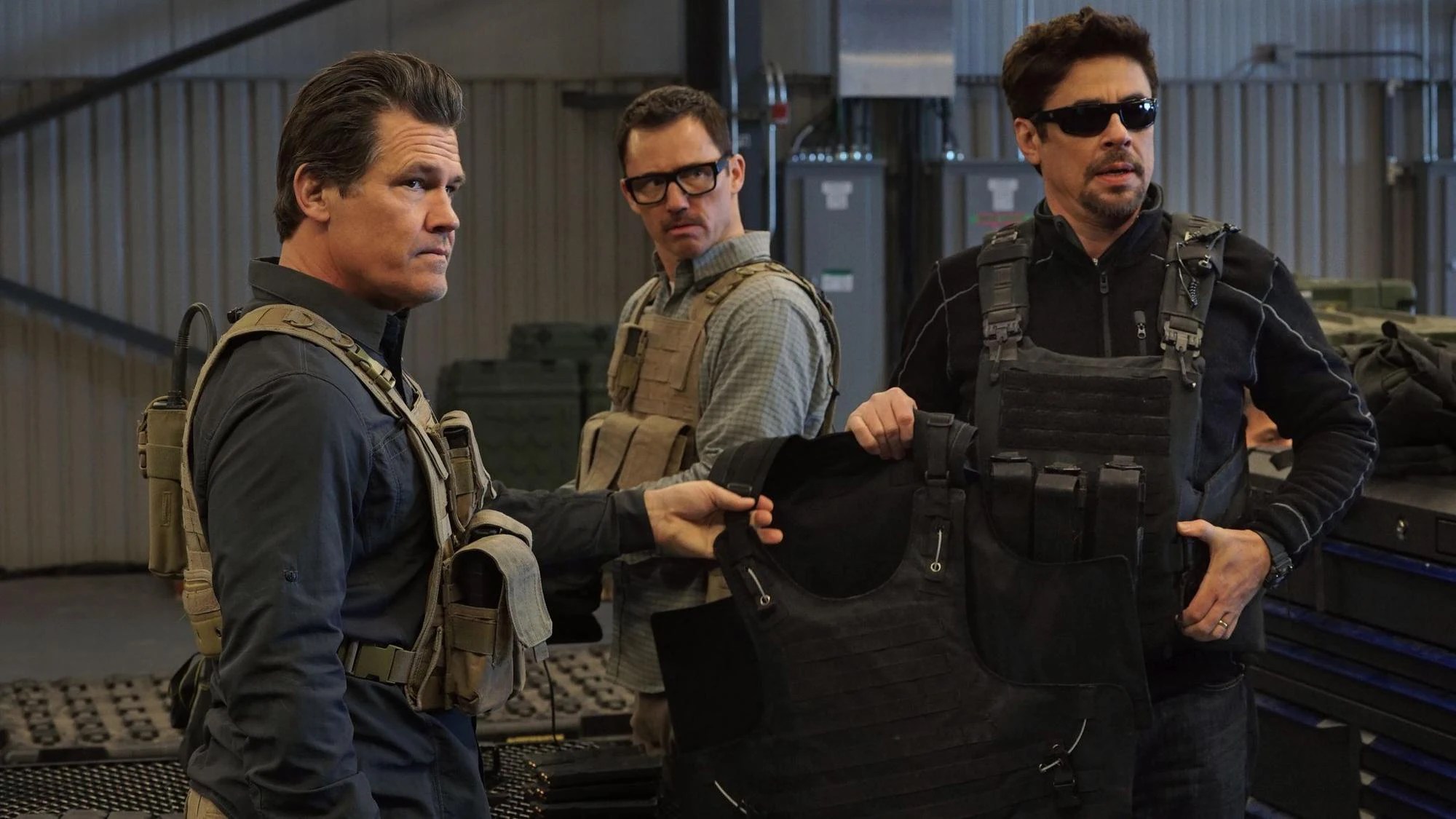
Is 'Sicario 2' Based On A True Story? The Movie Reflects The Real World
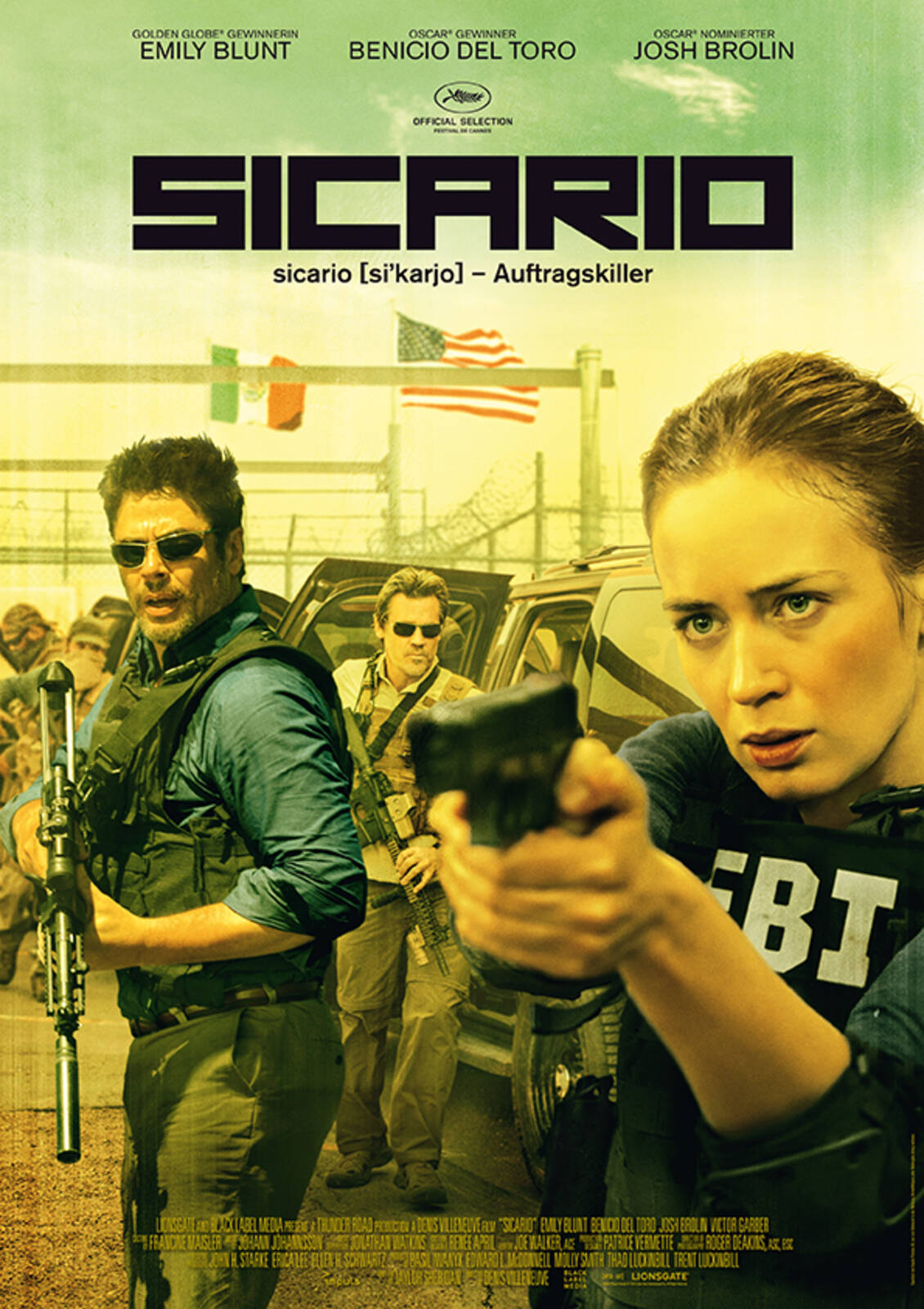
Movie Sicario Cineman
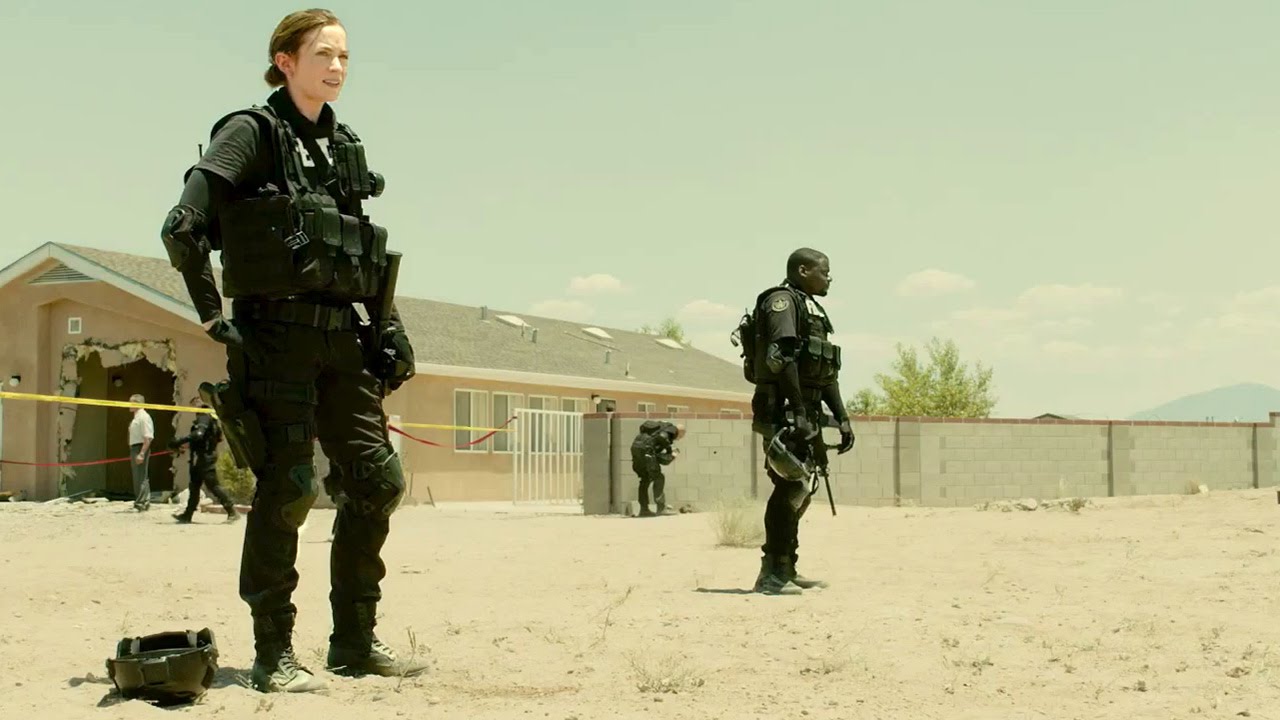
Is Sicario a True Story? Is the Movie Based on Real Life Drug Cartel?
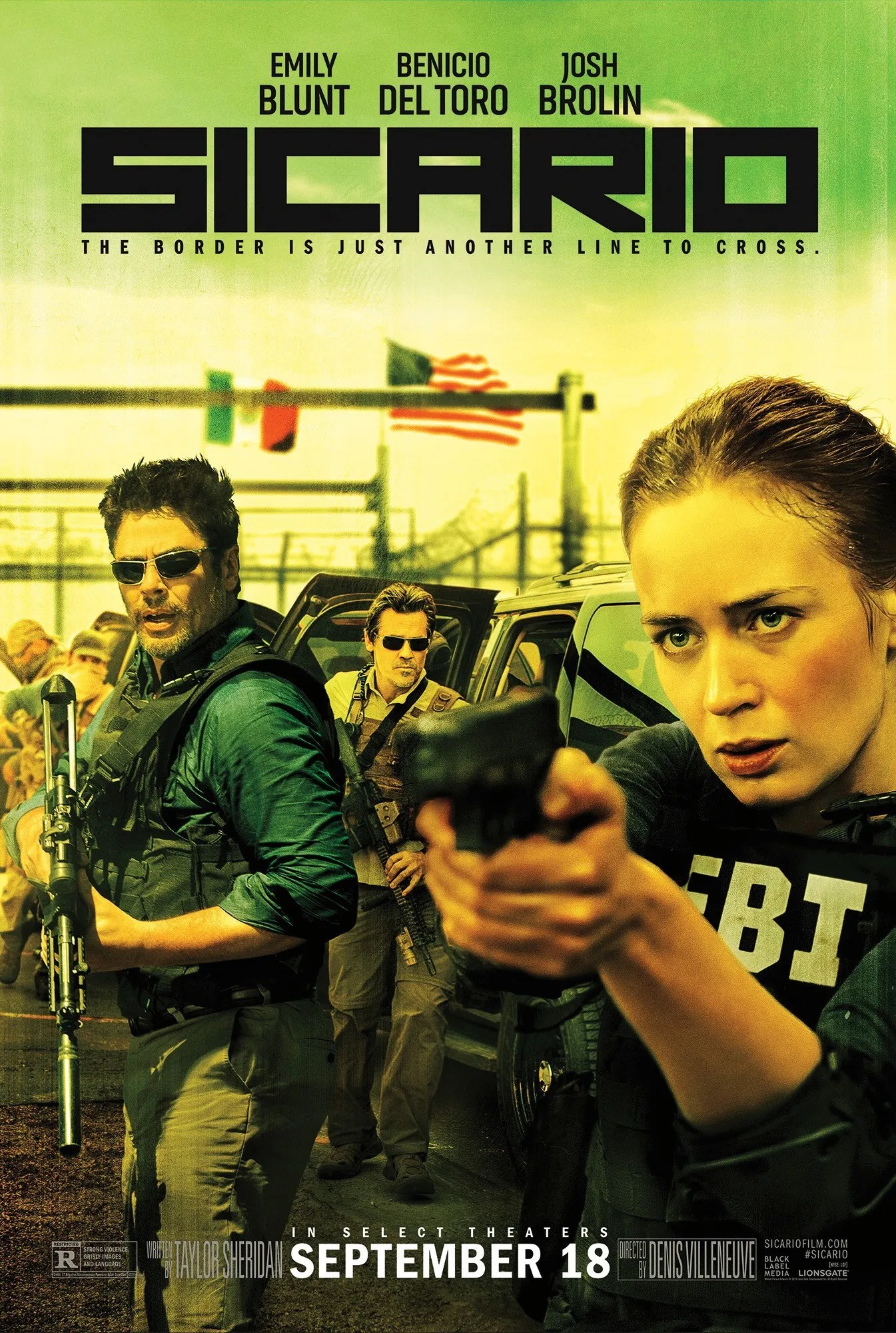
Sicario (Film) TV Tropes
ncG1vNJzZmibkaOupa3Nnq6sZpKhvKN6wqipnmannrulu9asZaedpGSwprfOcGaiq12otqSt0aKmZpldqb%2B2sYysq6iqqWO1tbnL